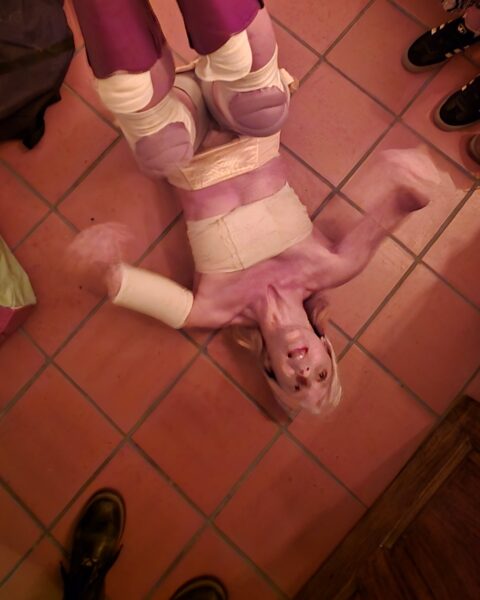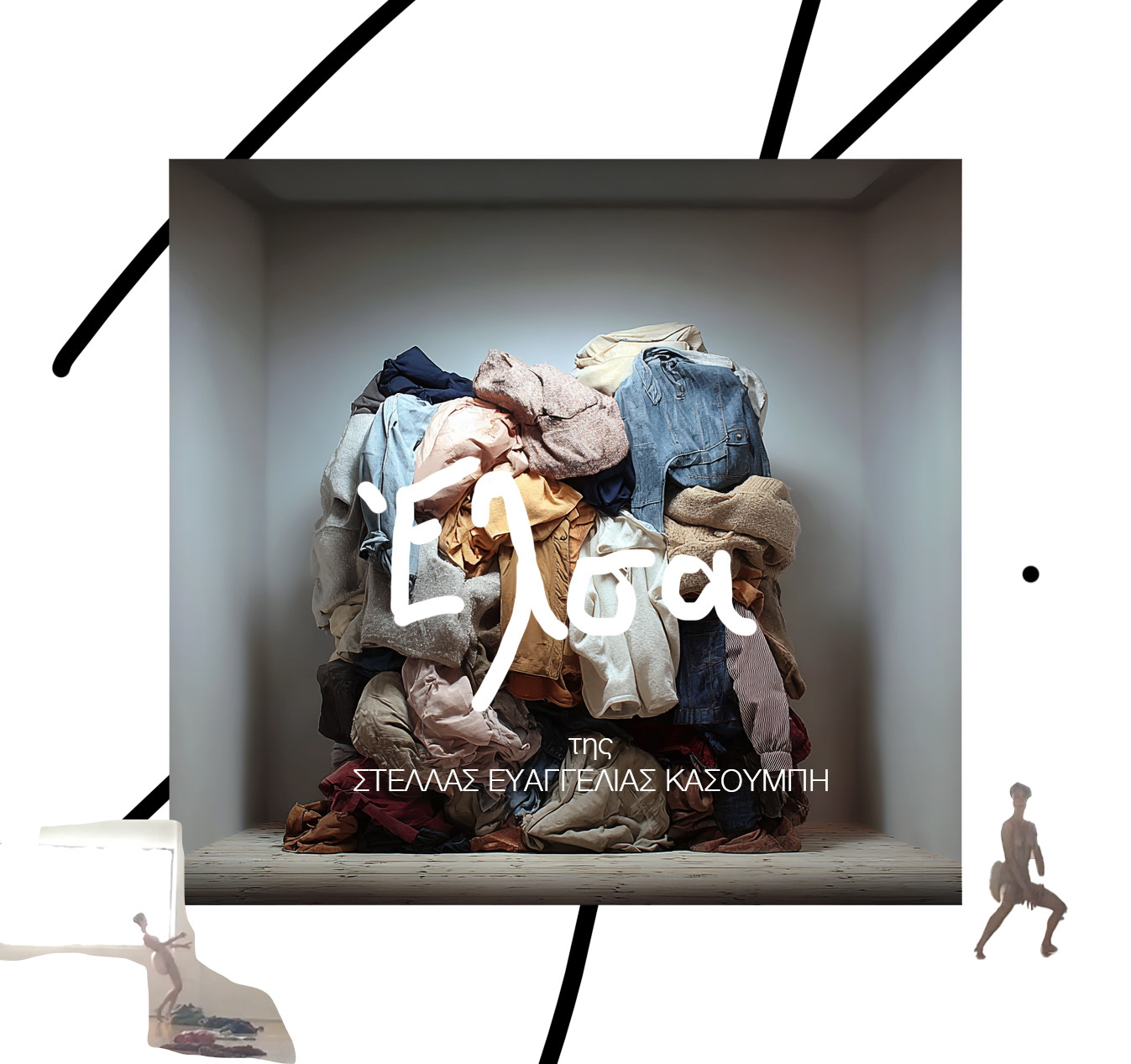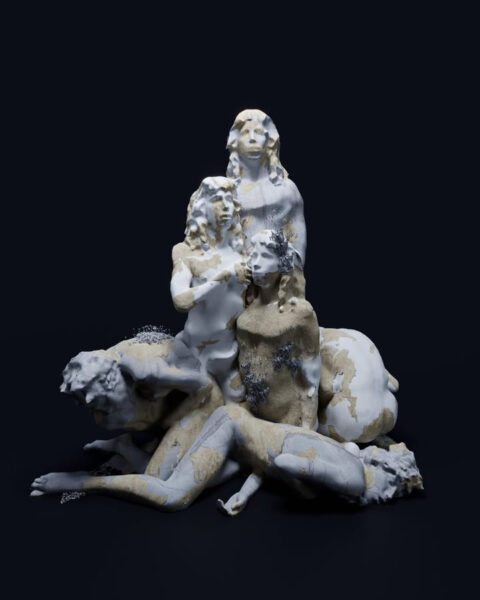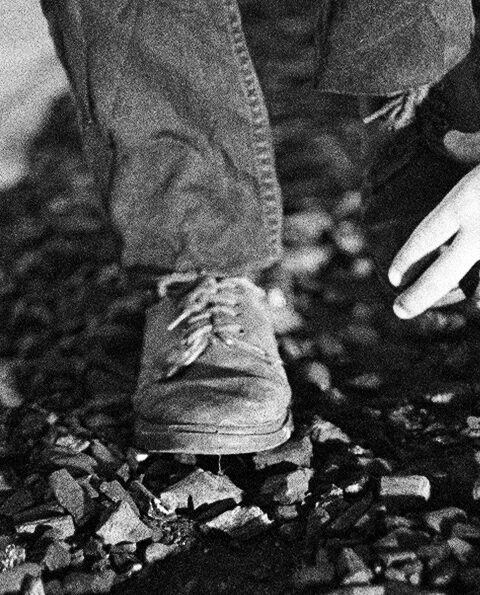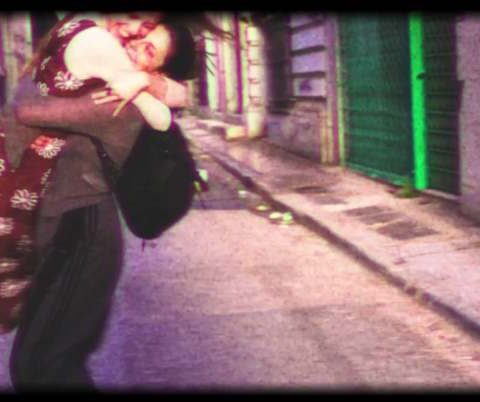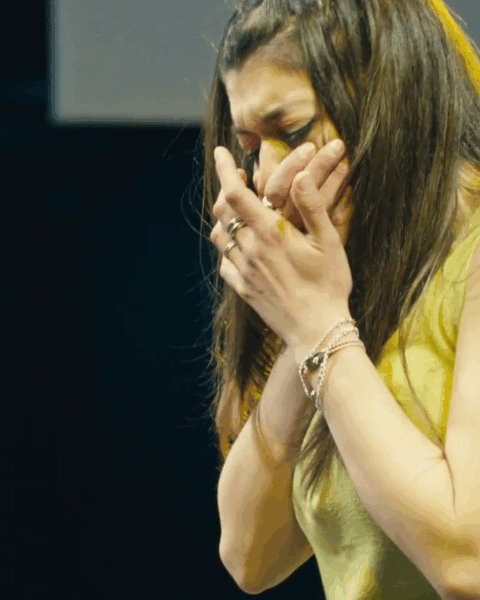
Kainkollektiv, Lydia Polyzoi & the Cosmic Sisters
In her solo performance, Greek actress Lydia Polyzoi rewrites Hecuba’s lament from ‘The Trojan Women’ with her own experiences as a woman, artist and citizen in contemporary Athens. Her performative account, which deals with scenes of encroachment and assault on spaces of intimacy, integrity and self-empowerment, of the right to and protection of one’s own person and body, evokes a larger story. Like ghosts, the voices of women suddenly appear, who turn out to be Lydia’s cosmic sisters. They recount their subjective realities in different parts of the world, which, in the form of a radio play performance, connect musically, poetically and personally with the ancient story and imaginary journey of the king’s daughters that Aeschylus conceived in his tragedy ‘The Suppliants’.
With THE RETURN OF THE KING’S DAUGHTERS, kainkollektiv, together with Lydia and the cosmic sisters, opens up a sound space in the form of a walk-in radio play that aims to bring to life the stories and songs of those forgotten ‘king’s daughters’ who have been erased from our white, male- dominated civilisation since ancient times.
In an acoustic-musical soundscape, the voices, narratives, personal accounts and soundscapes of cultures that have been erased by Western colonial history appear in an (Afro)futuristic and docu- fictional counter-journey through time and space.
The ‘cosmic sisters’ are artists from South Africa (ANNALYZER), Cameroon (ALIMA), Iran (9T ANTIOPE alias Sara Bigdeli Shamloo & Nima Aghiani), Canada/Germany (Vanessa Chartrand Rodrigue) and Greece (Lydia Polyzoi). Between pop and opera, indigenous chants and electro, they jointly develop ‘Songs of Future Care’. In a 3D sound space, they invite the listening audience to dissolve their own echo chambers and, in an acoustic invocation of spirits and the dead, to get to the bottom of the question that always looms on the horizon, both at the beginning and in the continuation of the colonial legacy:
WHO OWNS HISTORY? And whose memory counts?
A project by and with Anelisa Stuurman, Fabian Lettow, Immanuel Bartz, Lydia Polyzoi, Mirjam Schmuck, Pélagie Alima, Sara Bigdeli Shamloo, Shams Kassab, Silvia Dierkes, Vanessa Chartrand-Rodrigue.
[Note: The performances are part of the 30-hour durational performance THESMOPHORIA.THE NEW ANCIENT THEATRE – A post-antique theatre festival by kainkollektiv and part of the European Schools of Care.
A sonic invocation across time, bodies and worlds.
(https://kainkollektiv.de/de/projects/thesmophoria-the-new-ancient-theatre/)]
DURATION: 90′
